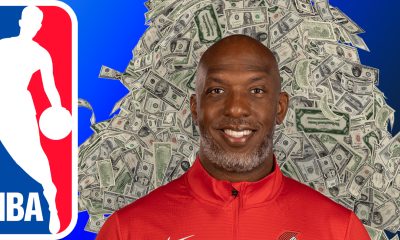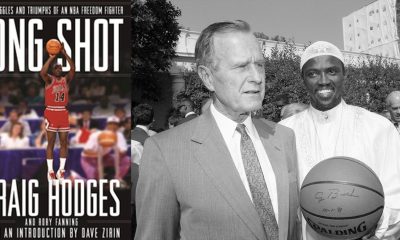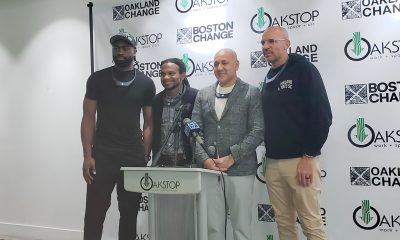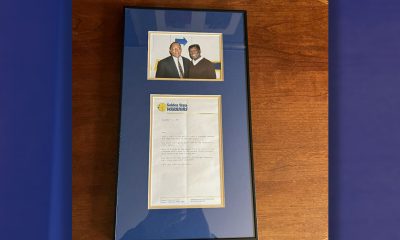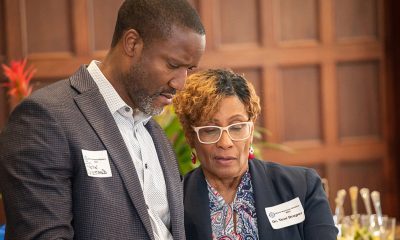COVID-19
California Surgeon General Embraces Idea of NBA Partnership for Vaccination Outreach
“Yes, absolutely. Please tell LeBron James to call me,” Dr. Burke Harris told California Black Media (CBM), referring to one of the league’s most high-profile Black members who plays for the Los Angeles Lakers. “I think it’s a wonderful partnership and I am excited for that to happen because we want to use our trusted messengers.”

When Dr. Nadine Burke Harris heard that the National Basketball Association (NBA) was discussing educating the African American community about receiving COVID-19 vaccines, she said partnering with the league could be a game-changer in the state of California.
Dr. Burke Harris, the Surgeon General of California, said she would embrace that strategy with open arms.
“Yes, absolutely. Please tell LeBron James to call me,” Dr. Burke Harris told California Black Media (CBM), referring to one of the league’s most high-profile Black members who plays for the Los Angeles Lakers. “I think it’s a wonderful partnership and I am excited for that to happen because we want to use our trusted messengers.”
NBA commissioner Adam Silver said on January 18 that the league’s players could use their influence to provide information to African Americans, other ethnic minorities, and the general public about vaccine safety and efficacy. It is something that the NBA is “particularly focused” on, he said.
“In the African American community, there has been an enormously disparate impact from COVID … but now, somewhat perversely, there has been enormous resistance [to vaccinations] for understandable historical reasons,” Silver said. “If that resistance continues, it would be very much a double whammy to the Black community because the only way out of this pandemic is to get vaccinated.”
The Surgeon General, California Dept. of Public Health officials, medical experts, and community leaders joined a Zoom news briefing last week with African American media in the state organized by CBM and the Center at Sierra Health Foundation.
Participants discussed how African American communities can continue to stay safe. They also talked about the state’s plan for COVID-19 vaccine distribution, and the safety and efficacy of COVID-19 vaccines.
Burke Harris, Dr. Elaine Batchlor, CEO of Los Angeles’ Martin Luther King Jr. Community Hospital, and Shantay R. Davies-Balch, founder of Fresno’s Black Wellness and Prosperity Center, were speakers at the virtual news briefing. The group stressed the necessity of speeding up statewide vaccinations to reduce hospitalizations and stem the spread of the disease.
Twenty-year-old Sacramento Kings guard Tyrese Haliburton said he was open to the idea of getting vaccinated for the NBA.
Haliburton, who left Iowa State University after two seasons and entered the 2020 NBA draft, is originally from Oshkosh, Wis., north of Milwaukee. To deal with frigid temperatures, he said getting flu shots before the winter was routine.
“I myself, am just going to listen to the public officials and I plan on getting the vaccine,” Haliburton said. “At a young age, I got all my vaccinations. So, I don’t see any reasons to stop now. Internally, we’ve (Haliburton’s teammates and other players in the NBA) talked about it. There are guys in the league that say they will get it and there are guys that say they won’t. That’s their opinion. I am going to get vaccinated.”
Silver said much of the mistrust about taking the vaccine in the Black community originated from a history of racism and malpractice against Blacks by the country’s medical establishment.
One specific example stands out: the infamous Tuskegee experiment.
In 1932, the United States Public Health Service, working with the Tuskegee Institute (now Tuskegee University) in Alabama, began a study to record the natural history of syphilis in hopes of understanding treatment programs for African Americans. It was called the “Tuskegee Study of Untreated Syphilis in the Negro Male.”
When penicillin was discovered and become the primary drug for treating syphilis in 1947, subjects were never provided the highly effective medication or a chance to resign from the study. The experiment continued until 1972 when the media exposed that it was still being conducted despite the fact a cure had been available for 25 years. A reporter from The Associated Press investigated the study and broke the news.
Nearly 400 participants in the study, primarily sharecroppers, suffered severe health problems, including blindness, mental illness or death. The study also led to the uncovering of other medical atrocities committed on Black citizens.
Haliburton shared with the media his knowledge of the Tuskegee Study. “I do understand why there is a drawback from some people with everything that has happened in the history of the world and vaccinations,” Haliburton said. “I’ve learned about the Tuskegee study and that crazy situation. I do understand how that can be crazy for African Americans. It’s their choice. It’s their bodies.”
Another medical incursion was Henrietta Lacks and her family. In 1951, without her knowledge and consent, cancer cells were taken from Lacks, a young Black woman with five children from Baltimore, Md. The cells, later called “HeLa,” were used to study the results of toxins, drugs, hormones, and viruses without experimenting on humans.
Lacks died at the age of 31. Reportedly, many medical institutions and related businesses profited from her cells without sharing any of the largesse with her surviving family. Lacks’ case became a focal point of medical ethics, sparking debate about whether researchers should be required to conduct such studies without the subject’s permission.
Dr. Anthony S. Fauci, the director of National Institute of Allergy and Infectious Diseases, said over the weekend that Pres. Joe Biden has talked about using pharmacies, community vaccine centers, and mobile units to speed up the process of getting more people vaccinated.
Fauci said there will be a “revving up of the capabilities and implementation of getting larger numbers of people vaccinated,” including, the Black community.
“One of the things that is a concern to me, and the reason why we are putting a considerable amount of effort into it, is to get over the vaccine hesitancy that we see in some segment of the population,” Dr. Fauci said. “Particularly and understandably, the minority population who have some hesitancy and skepticism based on some historical mistreatments. We need to vaccinate, we need to implement it, but we also have to overcome the hesitancy associated with it.”
Activism
ESSAY: Technology and Medicine, a Primary Care Point of View
The COVID-19 pandemic, for example, restricted millions of people to their homes, which required reliance on the internet for communication and information. Personal internet searches became essential to understanding information about COVID, human physiology, symptoms, and keeping up with vaccine updates. However, this increase in independent online research resulted in people accessing more misinformation circulating on the internet. This posed a challenge for medical providers trying to treat patients according to research-based guidelines. With so much information within reach, it was difficult for providers to help their patients distinguish between legitimate evidence-based sources and opinion, speculation, and fabrication.
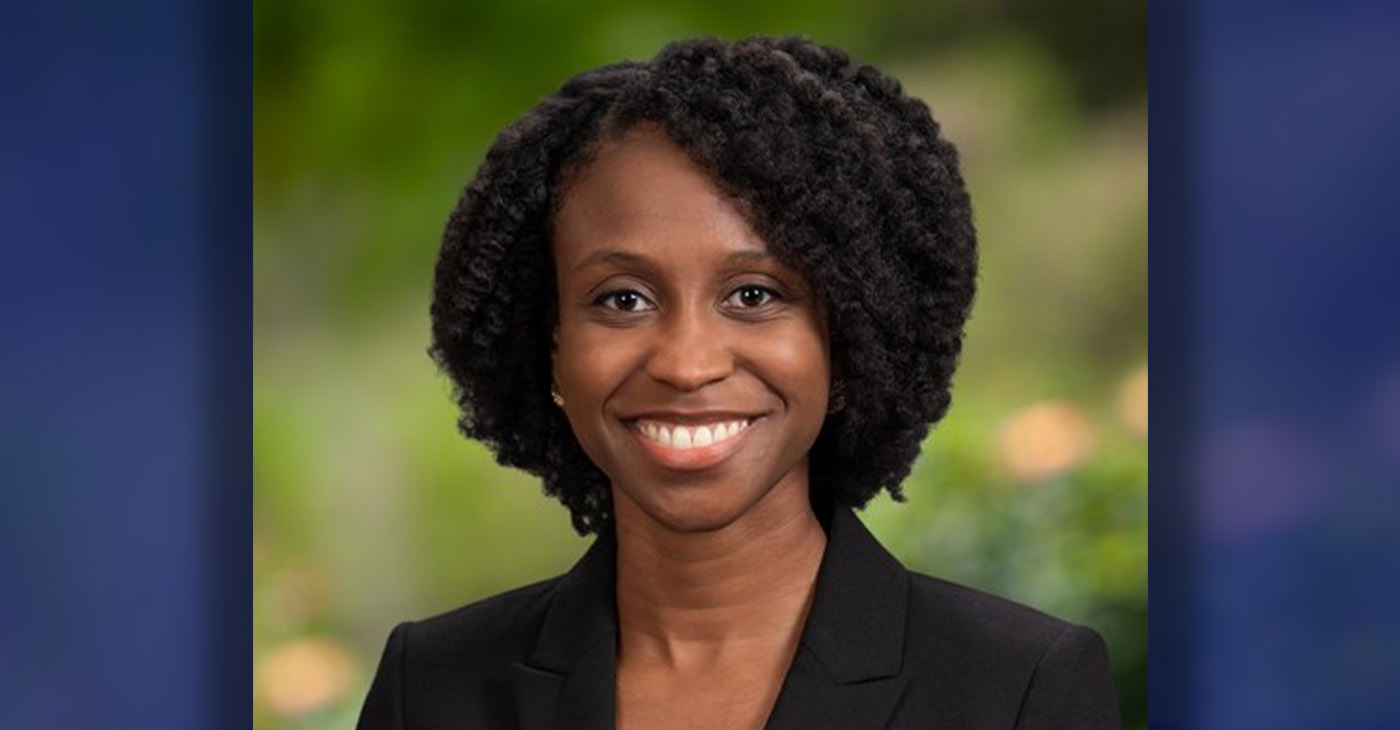
Dr. Adia Scrubb
Special to California Black Media Partners

Technology has enhanced communication between medical professionals and patients; improved patient care management; and eased access to care and information, benefiting both patients and medical clinicians.
However, despite the ease and many conveniences these patient care improvements have ushered in, adequate patient care still includes physician supervision, examinations, and interaction, which present challenges for keeping up with demands on the healthcare system and accurate patient education.
Technology has made more educational resources available at our fingertips, and it has created independence for those who want to know more about their bodies.
The COVID-19 pandemic, for example, restricted millions of people to their homes, which required reliance on the internet for communication and information. Personal internet searches became essential to understanding information about COVID, human physiology, symptoms, and keeping up with vaccine updates. However, this increase in independent online research resulted in people accessing more misinformation circulating on the internet. This posed a challenge for medical providers trying to treat patients according to research-based guidelines. With so much information within reach, it was difficult for providers to help their patients distinguish between legitimate evidence-based sources and opinion, speculation, and fabrication.
Nowadays, patients continuously arm themselves with medical information and challenge clinicians with the research they gather from internet sources to advocate for themselves and their care. This often leaves medical professionals with the complex task of navigating challenging discussions, pointing patients to validated and verified medical information, and following evidence-based medical guidelines for treatment.
Reviewing information before an appointment can certainly make an office visit much more productive, but it is essential to acknowledge the possible bias and limitations of internet searches. Consideration of the author, source, and date of the information may help determine its validity.
Furthermore, simply asking medical professionals for their preferred patient information resources will direct patients to safe and validated information that is in line with standards of care practices. This can help patients better understand the recommendations from their doctors and streamline their internet searches.
Access to individual online medical record information, such as blood tests, MRI reports, and office visit notes, has been a significant expansion of technology in medicine. This digitization of medical information enables and positions patients to take a leading role in managing their care. What used to be multiple sheets of paper in a large file folder is now a click away at any time. Despite these benefits, instant access can be overwhelming for both patients and medical providers, especially since patients, in many instances, can receive their test results online before the physician has had the opportunity to review them.
Patients may review the office visit notes or their lab results out of context or misinterpret information, which can lead to anxiety, confusion, and fear. Clinicians are put in a difficult position when they are not able to suddenly break away from their scheduled office visits to reassure an unscheduled patient about their results and next steps.
Medical providers have tools to assist with identifying sensitive results that need urgent review, and efforts are made to notify anxious patients as soon as possible. However, a patient can be proactive in scheduling a follow-up visit ahead of time to review results with their provider specifically. This can help patients avoid the stress of suddenly trying to get a hold of their doctor when dealing with unclear or concerning results. Normal test results often don’t require explanation, but allowing several days for your provider to work through hundreds of test results before sending messages requesting clarification will help medical professionals prioritize their responses to test results based on medical urgency.
Technological improvements such as online messaging and video/telephone appointments have made access to care much easier both for patients and clinicians. Telephone and video visits have been especially beneficial for patients who are elderly, disabled, or do not have access to transportation. However, the increase — and ease of — access has created much higher demand for physician time both during and outside of the office visit. Test results, patient messages, insurance forms, emails, and medication requests are all pouring in while providers conduct their daily scheduled appointments. Thus, very little time is left in the day for a clinician to respond to every email, fill out every form, and review every lab result when they are responsible for 1,800 or more patients.
This situation, unfortunately, creates a perceived delay in response in a culture where an instant response is expected from messaging and phone calls. But the reality is that the medical provider is constantly playing catch up to thousands of inquiries due to the around-the-clock online access patients now have.
Patients can make the most of their experience and their physician’s time by taking the time to learn their physician’s communication preferences. Despite the multiple modalities of access (telephone, email, video, in-person), a medical provider will have a preferred method of communication with their patients. Some may ask their patients to make an appointment to explain a complex topic, instead of responding to multiple messages. Others may prefer to communicate via phone call if they have to deliver bad news.
There will likely be more medical providers who prefer to communicate only through email or video appointments as remote work becomes more common. If a patient’s communication preferences align with their physician’s preferences, it will create a stronger patient-doctor relationship and foster more effective and impactful communication.
The expansion of technology in medicine has fostered better collaboration, communication, and education between patients and their medical professionals. Combining electronic resources with rapport, mutual respect, and trust for providers will help patients navigate this new landscape of healthcare.
About the Author
Dr. Adia Scrubb, MD, MPP, is a Board-Certified Family Medicine Physician currently practicing in Solano County.
Alameda County
After Years of Working Remotely, Oakland Requires All City Employees to Return to Office by April 7
City Administrator Jestin Johnson recently told city unions that he is ending Oakland’s telecommuting program. The new policy will require employees to come to work at least four days a week. These new regulations go into effect on Feb. 18 for non-union department heads, assistant and deputy directors, managers, and supervisors. All other employees must be back at work by April 7.
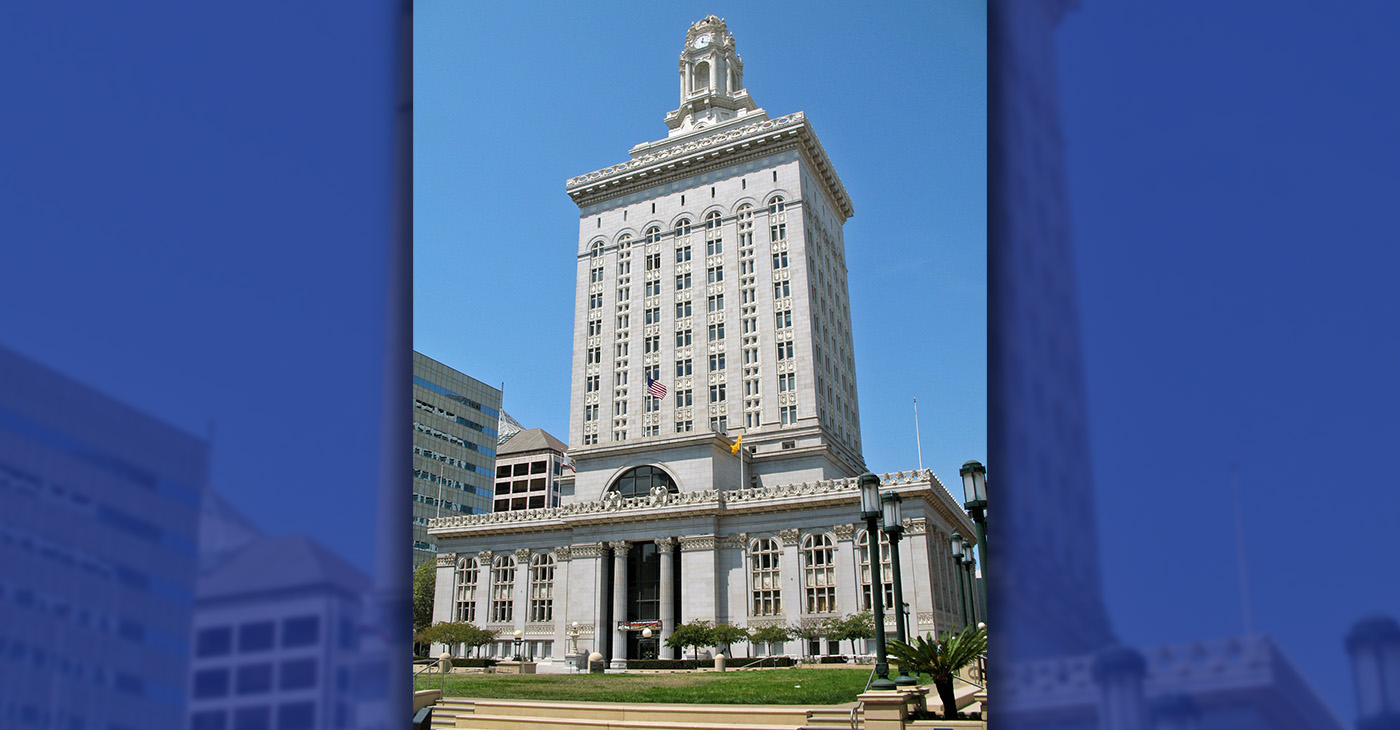
By Post Staff
The City Oakland is requiring all employees to return to the office, thereby ending the telecommuting policy established during the pandemic that has left some City Hall departments understaffed.
City Administrator Jestin Johnson recently told city unions that he is ending Oakland’s telecommuting program. The new policy will require employees to come to work at least four days a week.
These new regulations go into effect on Feb. 18 for non-union department heads, assistant and deputy directors, managers, and supervisors. All other employees must be back at work by April 7.
The administration may still grant the right to work remotely on a case-by-case basis.
In his memo to city unions, Johnson said former President Joe Biden had declared an end to the pandemic in September 2022, and that since then, “We have collectively moved into newer, safer health conditions.”
Johnson said “multiple departments” already have all their staff back in the office or workplace.
The City’s COVID-era policy, enacted in September 2021, was designed to reduce the spread of the debilitating and potentially fatal virus.
Many cities and companies across the country are now ending their pandemic-related remote work policies. Locally, mayoral candidate Loren Taylor in a press conference made the policy a central issue in his campaign for mayor.
City Hall reopened for in-person meetings two years ago, and the city’s decision to end remote work occurred before Taylor’s press conference.
At an endorsement meeting last Saturday of the John George Democratic Club, mayoral candidate Barbara Lee said she agreed that city workers should return to the job.
At the same time, she said, the city should allow employees time to readjust their lives, which were disrupted by the pandemic, and should recognize individual needs, taking care to maintain staff morale.
The John George club endorsed Lee for Mayor and Charlene Wang for City Council representative for District 2. The club also voted to take no position on the sales tax measure that will be on the April 15 ballot.
Activism
Freddie Ray Turner, 75
Fred enjoyed a 27-year career (1972-1999) with the Oakland Unified School District. Starting as a classroom teacher, he went on to serve as a vice principal, principal and retired as director of Student Services. But retirement was not in the cards for Fred. He went on to serve as the Fremont Unified School District’s director of Pupil Services for five years, retiring in 2004.
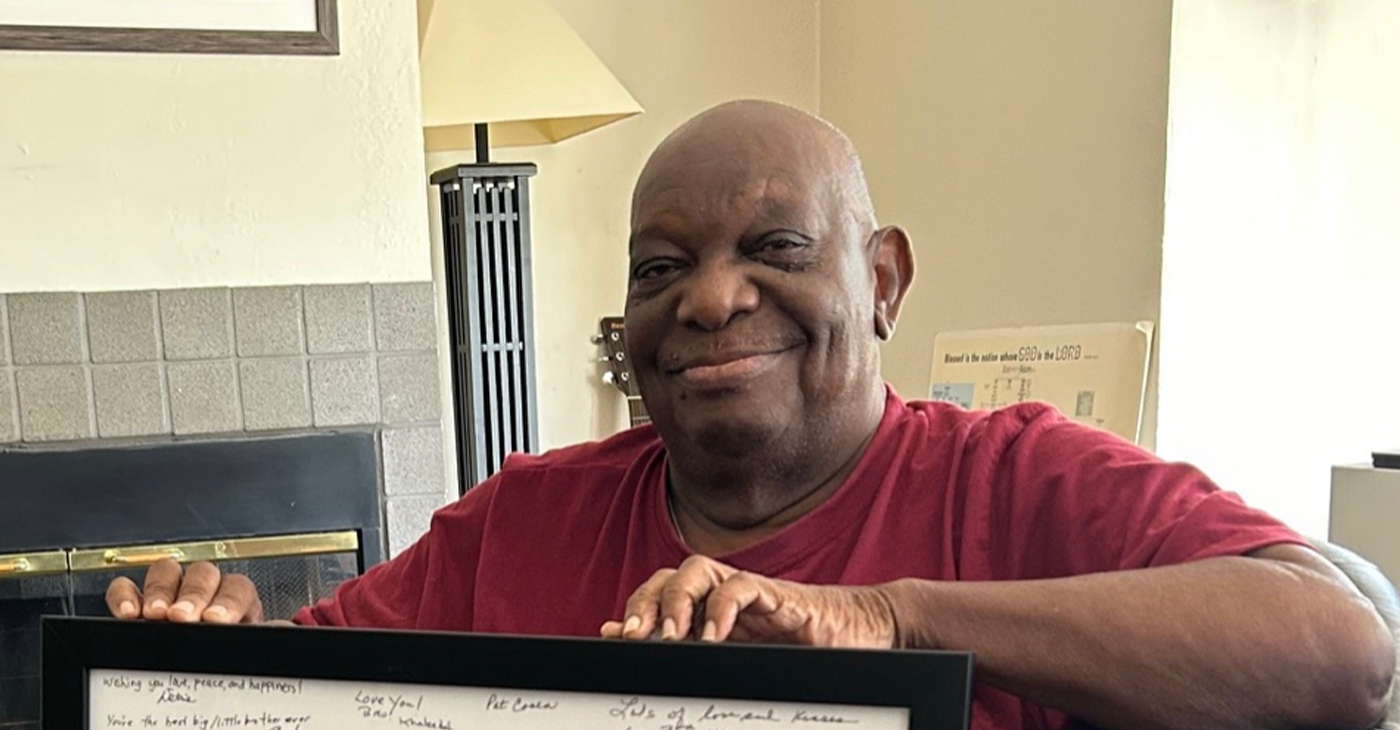
Special to The Post
Freddie Ray Turner was born in Mesa, Arizona, on July 15, 1949, the youngest of Carlanthe and Jimmie Turner’s seven children. Fred attended the Chandler public schools and graduated high school in 1966. He earned a Bachelor of Arts degree in Drama and Spanish from Arizona State University in Tempe, Arizona.
Relocated to the Bay Area, he continued his education, and earned a master’s degree in Education Administration from California State University-Hayward.
Fred enjoyed a 27-year career (1972-1999) with the Oakland Unified School District. Starting as a classroom teacher, he went on to serve as a vice principal, principal and retired as director of Student Services. But retirement was not in the cards for Fred. He went on to serve as the Fremont Unified School District’s director of Pupil Services for five years, retiring in 2004.
Throughout his life, Fred traveled the world. He didn’t just have a “travel bug,” Fred was a travel bug. He graduated from overnight stays in youth hostels in Paris, Rome, and Madrid to vacationing in much finer accommodations in Kenya, Turkey, China, Japan, Spain, Italy, Portugal, Israel, Amsterdam, and South Africa. If there was an airport, at some time in his life Fred Turner landed in it.
Fred was a devoted member of Brother-to-Brother from 2005 until his passing. He was also a life associate of the East Oakland-Hayward section of the National Council for Negro Women, an organization he strongly supported since 2013. Fred also served on the Board of Directors for the Leadership Institute at Allen Temple Baptist Church.
An avid reader, Fred’s response to the lockdown caused by the 2020 COVID pandemic was to organize “Plot Chasers,” a close group of friends who meet weekly to read and discuss short stories.
Fred passed away on Dec. 15, 2024, following a brief hospitalization. He was predeceased by his parents, his sister, Madelyn, and brothers Robert Lee and Franklin Eugene.
He leaves to mourn his surviving siblings Artie Mae Clark, Dorothy Rome, and Jimmie Richard Turner; first cousin, Catherine Markham; a host of nieces and nephews, great- nieces and nephews, and very close friends.
A Celebration of Life Service will be held at 12:30 p.m. on Saturday, Feb. 8, at Allen Temple Family Life Center, 8501 International Blvd., in Oakland, CA.
In lieu of flowers, the family is asking that friends honor Fred’s memory with a donation in Fred’s name to the National Alzheimer’s & Related Disorders Association, or to the East Bay AIDs Advocacy Foundation.
-

 Activism3 weeks ago
Activism3 weeks agoOakland Post: Week of November 12 – 18, 2025
-

 Activism4 weeks ago
Activism4 weeks agoOakland Post: Week of November 5 – 11, 2025
-

 Activism2 weeks ago
Activism2 weeks agoIN MEMORIAM: William ‘Bill’ Patterson, 94
-

 Activism3 weeks ago
Activism3 weeks agoHow Charles R. Drew University Navigated More Than $20 Million in Fed Cuts – Still Prioritizing Students and Community Health
-

 Bay Area3 weeks ago
Bay Area3 weeks agoNo Justice in the Justice System
-

 #NNPA BlackPress3 weeks ago
#NNPA BlackPress3 weeks agoThe Perfumed Hand of Hypocrisy: Trump Hosted Former Terror Suspect While America Condemns a Muslim Mayor
-

 #NNPA BlackPress2 weeks ago
#NNPA BlackPress2 weeks agoTrump’s Death Threat Rhetoric Sends Nation into Crisis
-

 #NNPA BlackPress3 weeks ago
#NNPA BlackPress3 weeks agoProtecting Pedophiles: The GOP’s Warped Crusade Against Its Own Lies

